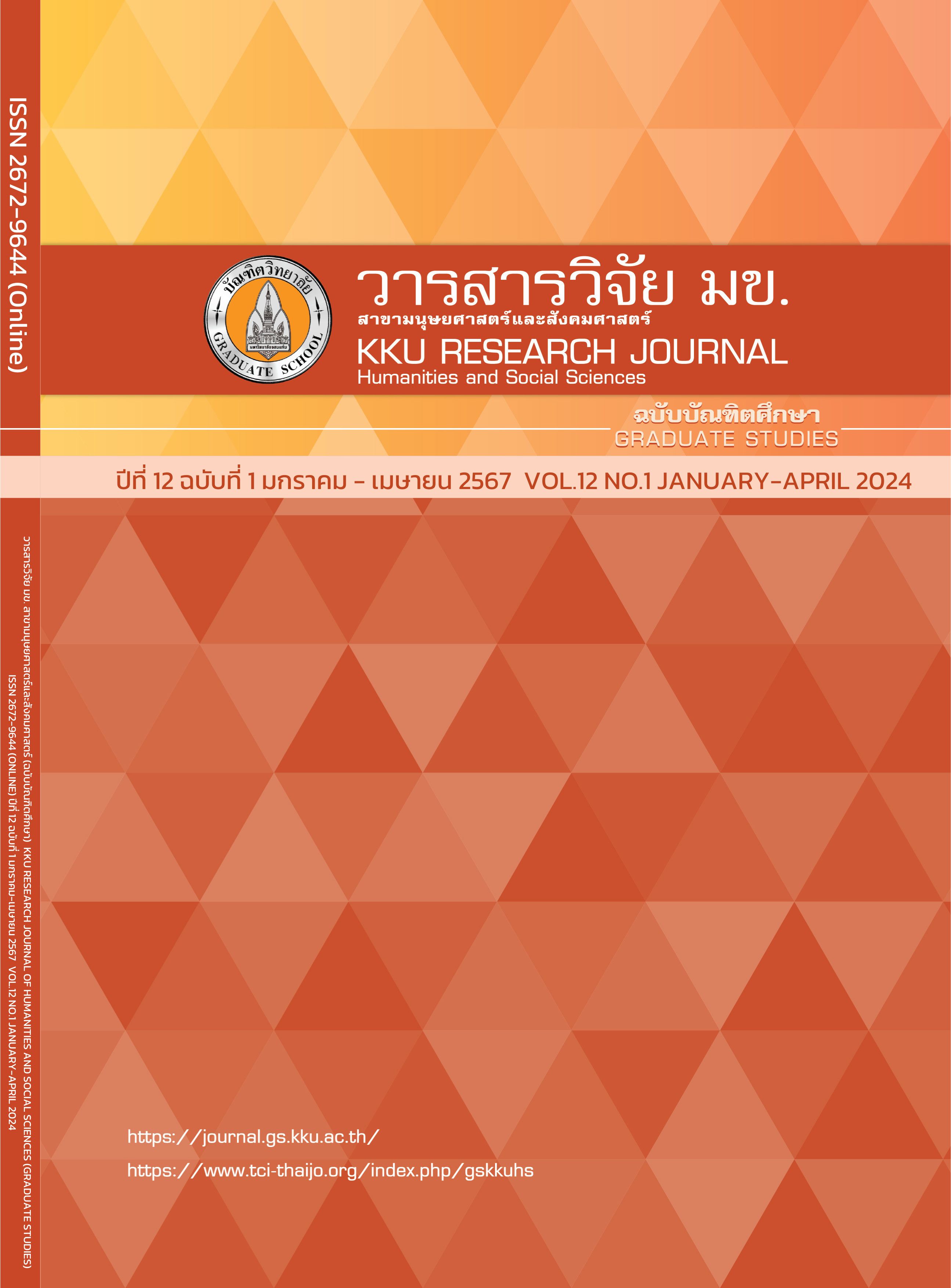The การศึกษาหลักฐานความตรงของการประเมินวินิจฉัยทางพุทธิปัญญา เรื่อง การใช้ภาษาญี่ปุ่นเพื่อการสื่อสาร สำหรับนักเรียนชั้นมัธยมศึกษาปีที่ 4
คำสำคัญ:
หลักฐานความตรง, การประเมินวินิจฉัยทางพุทธิปัญญา, ภาษาญี่ปุ่นบทคัดย่อ
การวิจัยครั้งนี้มีวัตถุประสงค์เพื่อพัฒนาแบบสอบวินิจฉัยทางพุทธิปัญญา เรื่อง การใช้ภาษาญี่ปุ่นเพื่อการสื่อสาร สำหรับนักเรียนชั้นมัธยมศึกษาปีที่ 4 โดยใช้โมเดล DINA มีวัตถุประสงค์เพื่อพัฒนาแบบทดสอบวินิจฉัยทางพุทธิปัญญา เพื่อพัฒนาแบบรายงานผลการประเมินวินิจฉัย และเพื่อศึกษาหลักฐานความตรงของการประเมินวินิจฉัยทางพุทธิปัญญา เป็นวิจัยออกแบบและพัฒนา แบ่งออกเป็น 2 ระยะ คือ 1.การพัฒนาแบบสอบวินิจฉัยทางพุทธิปัญญา 2.การศึกษาการนำผลการวินิจฉัยทางพุทธิปัญญาไปใช้ประโยชน์ ผลการวิจัย พบว่า แบบสอบวินิจฉัยทางพุทธิปัญญามีคุณภาพอยู่ในเกณฑ์ที่ยอมรับได้มีความเหมาะสมที่จะนำไปใช้ในการวินิจฉัยผู้เรียน ผลการออกแบบและพัฒนาแบบรายงาน พบว่า แบบรายงานมีคุณภาพและความเหมาะสมที่จะนำไปใช้ ผลการศึกษาหลักฐานความตรง พบว่า หลักฐานความตรงเกิดขึ้นทั้ง 5 ประเภท ได้แก่ ความตรงตามเนื้อหา ความตรงตามกระบวนการตอบสนอง ความตรงตามโครงสร้าง ความตรงตามความสัมพันธ์กับตัวแปรอื่น และความตรงของผลลัพธ์ที่เกิดขึ้น
เอกสารอ้างอิง
เอกสารอ้างอิง
Leighton RJ Gokiert MK Cor, Heffernan C. Assessment in Education. Principles, Policy&Practice; 2010
Leighton JP, Gierl MJ. Cognitive Diagnostics Assessment for Education Theory and Application. New York: Cambridge University Press; 2007.
Ketterlin-Geller LR, Yovanoff P. Diagnostic assessments in mathematics to support instructional decision making. Practical Assessment Research and Evaluation; 2009.
Pornsuda S. Design and Development Research of Cognitive Diagnostic test and Personalized Report on Addition and Subtraction of Fractions for Matthayomsuksa 1 Students. [MSc thesis]. Khon Kaen: Khon Kaen University; 2021. Thai.
Gregory J. Cizek. Sources of Validity Evidence for Educational and Psychological Tests: A Follow-Up Study. Paper Presented at the Annual Meeting of the National Council on Measurement in Education Denver; 2010.
Joseph Rios and Craig Wells. Validity evidence based on internal structure. Psicothema 2014; 26(1): 108-116.
American Educational Research Association (AERA), American Psychological Association, & National Council on Measurement in Education. Standards for educational and psychological testing. Washington, DC: AERA; 2014.
Chaiwichit C. Evidence of the reliability and validity of self-directed learning scale for technical college students: An analysis of multi-method. ED KKU J. 2010; 36(1): 67-76. Thai.
ดาวน์โหลด
เผยแพร่แล้ว
รูปแบบการอ้างอิง
ฉบับ
ประเภทบทความ
สัญญาอนุญาต

อนุญาตภายใต้เงื่อนไข Creative Commons Attribution-NonCommercial-NoDerivatives 4.0 International License.




